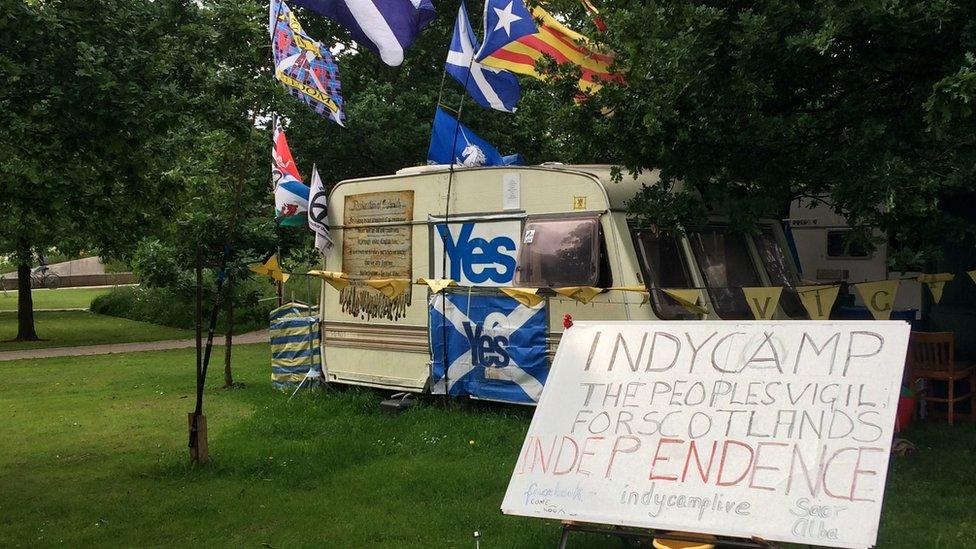IndyCamp eviction case cost Scottish Parliament £100,000
- Published
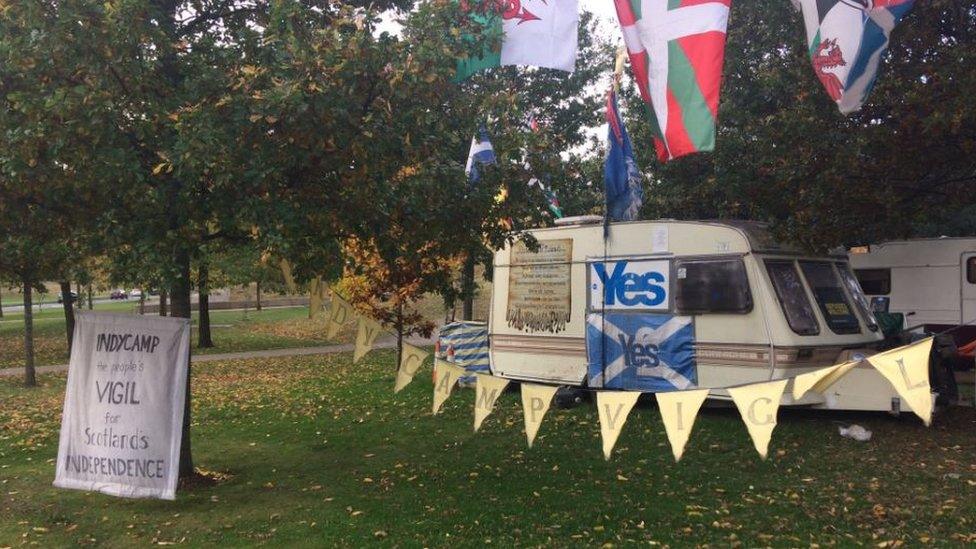
The camp was set up outside the Scottish Parliament in November 2015
The Scottish Parliament's legal action to evict a group of independence campaigners from the Holyrood estate cost more than £100,000.
The IndyCamp group were removed from their camp after 11 months on the parliamentary estate.
The lengthy legal battle and eventual eviction cost a total of £105,889.65, external, excluding recoverable VAT.
A parliament spokesman confirmed it would apply to the Court of Session for an award of expenses.
Parliament took the "unusual step" of publishing the costs associated with the court action "in recognition of the clear public interest" in the case.
The spokesman added: "Given the parliamentary corporate body's duty to use public money prudently, it will also be applying to the Court of Session for an award of expenses. It will be for the court to decide whether to award costs, and, if so, the level of costs awarded."
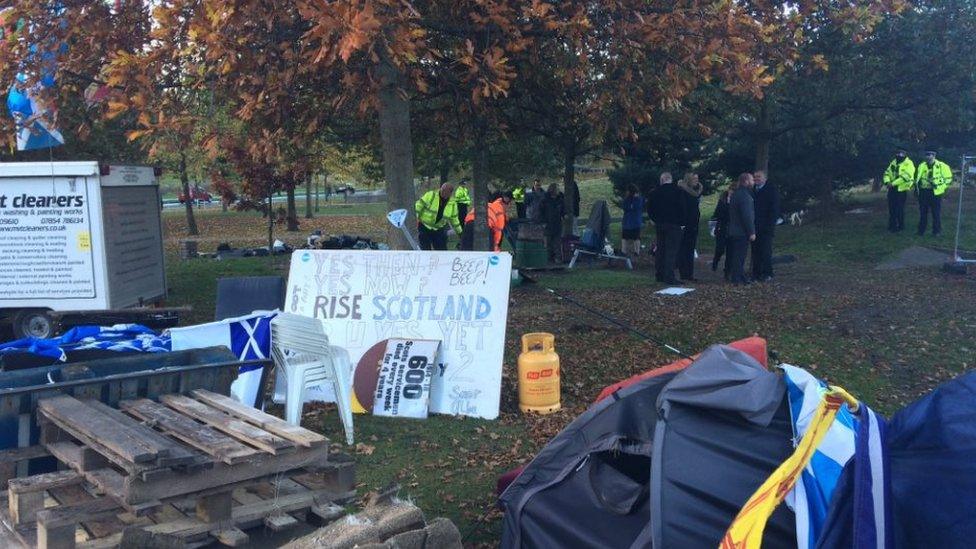
The camp was evicted after 11 months on the parliamentary estate
The camp was set up outside Holyrood in November 2015, with the intention of staying in place until Scotland becomes independent.
However, the campers were taken to court by the parliament's corporate body, which argued the group were taking up space others could be using and compromising the political neutrality of the parliamentary estate.
Lord Turnbull ruled against the campers in the initial Court of Session hearing, which cost the parliament - represented in court by Brodies LLP and QC Gerry Moynihan - a total of £67,150.95.
The IndyCamp group unsuccessfully appealed against this decision in the Inner House, and that further case cost £38,738.70.
These costs were met from the corporate body's annual budget in the first instance. The campers represented themselves or had lay representatives in all but one hearing.
The campers submitted an application to appeal against the Inner House verdict at the Supreme Court of the United Kingdom, and have said they intend to continue to pursue this appeal.
- Published4 November 2016
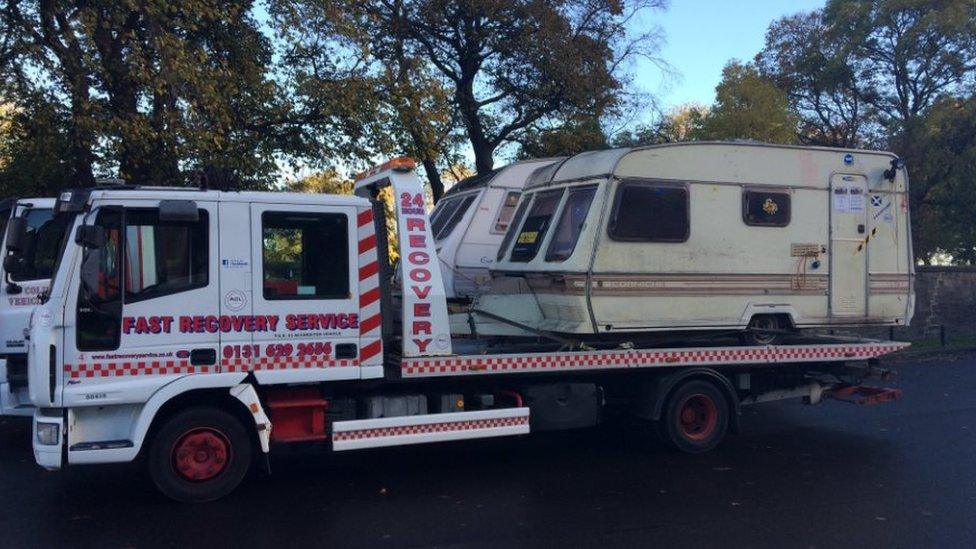
- Published28 October 2016
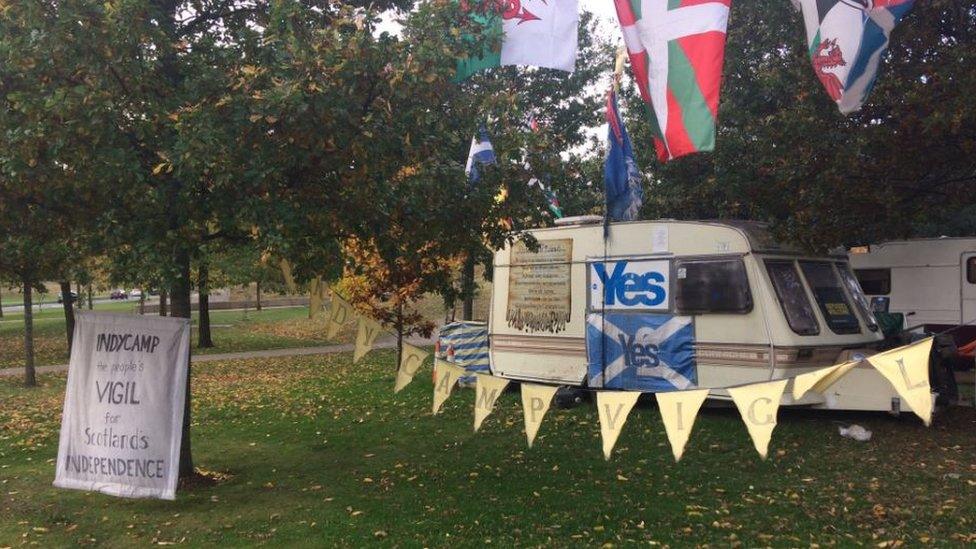
- Published27 July 2016
